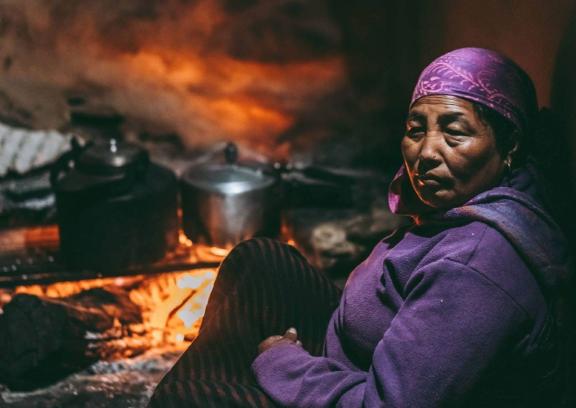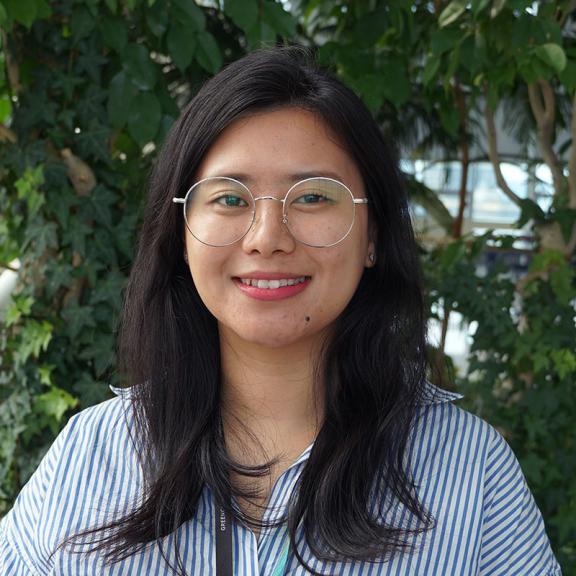Enhancing the capacity of GCF accredited entities through the pandemic: What does direct engagement with project teams look like?
The IEU’s Learning Oriented Real-Time Impact Assessment (LORTA) programme continues to serve the IEU’s mandate to enhance capacity and support the learning of Direct Access Entities (DAEs) accredited with the Green Climate Fund, even through the COVID-19 pandemic.
In 2021, I supported the planning of the 9-week LORTA Virtual Design Workshop, along with other team members. The workshop included weekly webinars, which were preceded by an iLearn video and a live breakout group session. Having just completed my Master’s when I joined the IEU, I didn’t realize that I would be working so closely with colleagues from renowned organizations like J-PAL, FAO, and Busara to deliver this workshop!
Nor did I realize I would have so much interaction with project managers and M&E teams, especially from the Alternative Energy Promotion Centre (AEPC)- Nepal. As I hail from Nagaland, India, I know that one thing remains common between Nepal and my home region - the socio-economic parameters and cooking practice. Access to clean cooking energy is an issue especially for women in my community because women are primarily responsible for cooking. Being able to work and interact with the Nepalese team right from the start gave me a sense of indirectly empowering the women in my community.
LORTA VIrtual Design Workshop 2011
The AEPC-Nepal’s Clean Cookstove Solutions project with the GCF (FP172) is designed to support 10 million households in the Southern region of Nepal across 150 local government areas. Specifically, the project aims to provide 10,000 domestic biogas digesters to households that have sufficient livestock, 500,000 efficient electric cookstoves to poor households in urban/peri-urban households, and 90,000 improved cookstoves in rural areas that use open fire traditional cookstoves.
An elderly woman sitting by a traditional cookstove. Source: Vladimir Soic/Shutterstock.com
Speaking of open-fire traditional cookstoves, I was curious as to how the project team would convince or transform the mindset of those with a 100-year-old tradition that is deeply rooted in their culture. In my experience, people living in most rural areas do not think cooking out in the open and the ensuing smoke is a problem. However, this also meant that it could serve as an opportunity for AEPC to engage in a more pragmatic manner through proper educational training and workshops.
The LORTA team worked closely with AEPC to help formulate the best impact evaluation design suited to achieve the necessary scale. This was done in multiple steps such as constructing a theory of change (ToC) and delving into evaluation questions and indicators. Further, doing so enabled the project team to bring in the aspect of cultural context.
Central to the whole process was not only AEPC’s keen interest in integrating an impact evaluation design but also the commitment from the local government bodies in terms of contributions and identifying potential beneficiaries. This is important because project implementation may not always go as originally planned, and there could be implementation delays, political challenges, unforeseen interventions, etc. However, with the strong support of DAEs, executing entities (EEs), and accredited entities (AEs), the project implementation process can be accelerated.
What makes LORTA unique is its ability to engage closely with these entities. And the LORTA Virtual Design Workshop did that through multiple breakout sessions, surveys, and discussions. I also had the opportunity to ask questions that we sometimes overlook. For instance, I asked the project team for FP146, a reforestation and biodiversity project in Nicaragua being funded by the GCF, how the indigenous people’s land rights were being addressed by the community leaders. Such a subtle yet very important component could be highlighted during the LORTA workshop, which I appreciated very much while working as a member of the LORTA team.
Coming back to the Clean Cookstove Solutions project (FP172), AEPC is currently in its inception phase with LORTA, meaning we are on the verge of preparing an analysis plan. This gives us a clear narrative and scope of the intervention that the team will provide. All in all, I do hope that through the completion of the cookstove project, the women of Nepal will soon have more ownership and be empowered to make effective decisions to support the well-being of their families.
Disclaimer: The views expressed in blogs are the author's own and do not necessarily reflect the views of the Independent Evaluation Unit of the Green Climate Fund.
